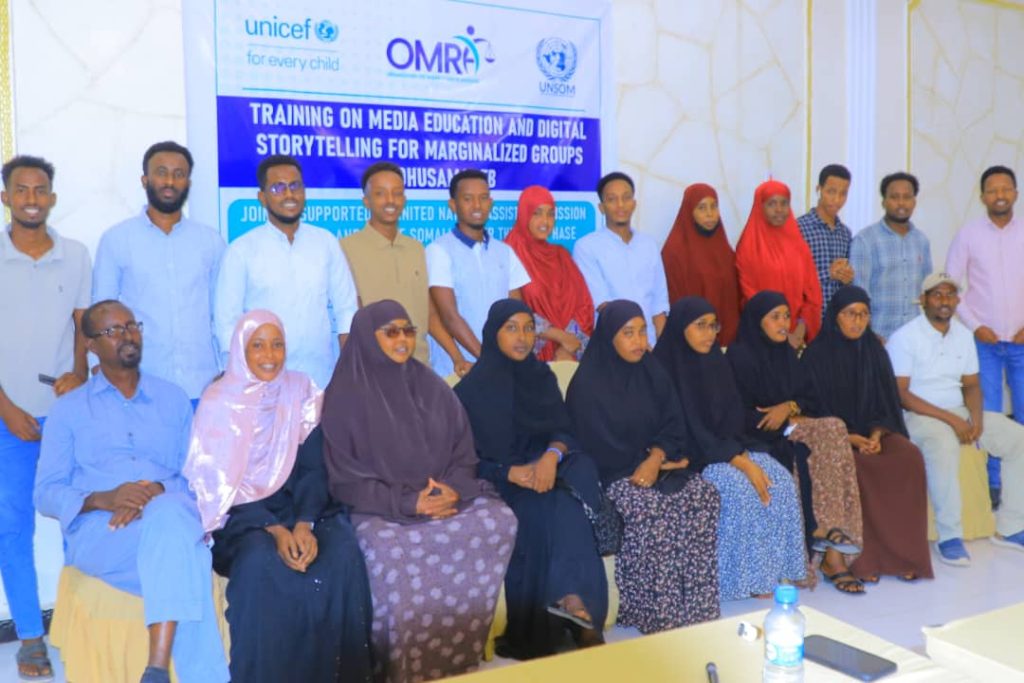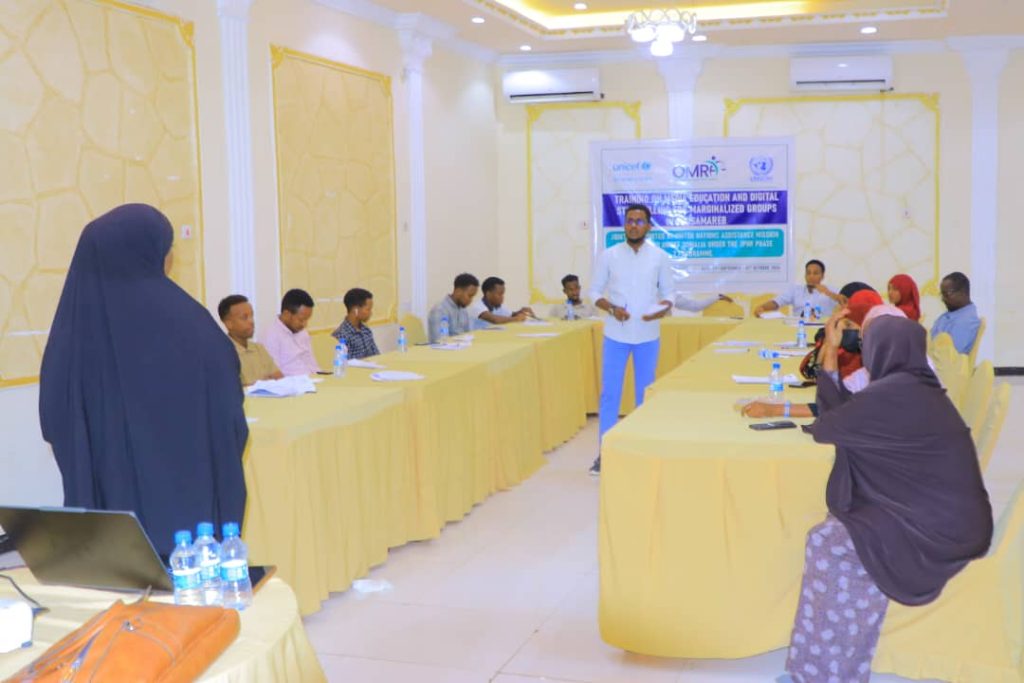Success Story on Zahra: A participant of OMRA’s Recent Media Education and Digital Storytelling Training for Marginalized and Survivors in Dhusamateb

Just days after attending the “Digital Storytelling and Media Education Training for Survivors and Marginalized Groups” in Dhusamareb, a remarkable transformation began to unfold. The participants, many of whom had previously been silent observers of their communities’ struggles, were now armed with the tools to share their own narratives and amplify the voices of others. This training, organized by Organization for Minority Rights Advocate – OMRA with the support from UNSOM and UNICEF, did more than provide practical skills—it ignited a movement.
From Silent Witnesses to Powerful Advocates

Among the attendees was, Sahra, a survivor of gender-based violence, whose life changed dramatically after the training. For the first time, Sahra felt empowered to tell her story in her own words, using digital tools that allowed her to shape her narrative. She expressed the profound impact of the training:
“Before this, I never imagined I could share my experience in a way that would be heard by others, let alone inspire them. But now, I’m not just telling my story—I’m helping other women do the same. We are no longer silent; we are sharing our strength and resilience with the world.”
Inspired by the newfound knowledge in media literacy, digital storytelling, and ethical reporting, Sahra and several other women participants are now planning a project that will empower women in their communities to share their stories of survival and courage. They aim to organize workshops where women will learn how to craft their narratives using digital platforms—ensuring their voices are heard, their struggles understood, and their triumphs celebrated.
Creating a Platform for Women’s Rights Advocacy
The vision behind this project goes beyond storytelling. Sahra and her fellow participants hope to build a platform where marginalized women can advocate for their rights, share personal testimonies, and challenge the social injustices they face. By turning their lived experiences into powerful digital stories, these women aim to highlight the everyday challenges of discrimination, violence, and marginalization, while also showcasing their strength and resilience.
“We want to change the way people see us. Our stories are not just about the pain we’ve endured—they’re about our strength, our ability to overcome, and the future we’re fighting for,” Sahra explained. “Through these stories, we’re not only raising awareness but calling for change.”
Sahra envisions using these stories to engage local leaders and stakeholders, fostering deeper understanding and building support for women’s rights in Dhusamareb and beyond. The power of these personal narratives, shared on social media platforms and through community events, will amplify the voices of those who are often unheard, pushing for policy changes and societal support.
A Catalyst for Immediate Change
What makes this initiative particularly remarkable is the immediate impact the training had on its participants. Just days after completing the program, Sahra and her peers were already putting their skills into action—organizing, planning, and advocating. Their proactive approach exemplifies the transformative potential of digital storytelling as a tool for social change.
Donors (UNSOM and UNICEF) and Implementing partner (OMRA) can take pride in witnessing the tangible outcomes of this initiative. By investing in marginalized communities and equipping them with practical skills, they have ignited a movement that empowers survivors to advocate for their rights and those of others. This isn’t just a short-term success; it’s a foundation for long-term advocacy and empowerment in Galmudug.
Empowering the Next Generation of Advocates
Looking ahead, Sahra and her peers are committed to building on this momentum. With continued support, they envision expanding their efforts—training more women, amplifying more voices, and advocating for broader societal change. The digital storytelling skills they have gained will continue to be a powerful tool for advocacy, awareness-raising, and human rights promotion in Dhusamareb and beyond.
As Sahra proudly states:
“This is just the beginning. With the skills we’ve learned, we can change not just our communities, but the way the world sees us. We are no longer victims. We are storytellers, advocates, and leaders.“
This exemplifies the transformative impact of capacity-building trainings for marginalized groups and the resilience of women, who, when equipped with the right tools and skills, can drive meaningful change in their communities and beyond.
